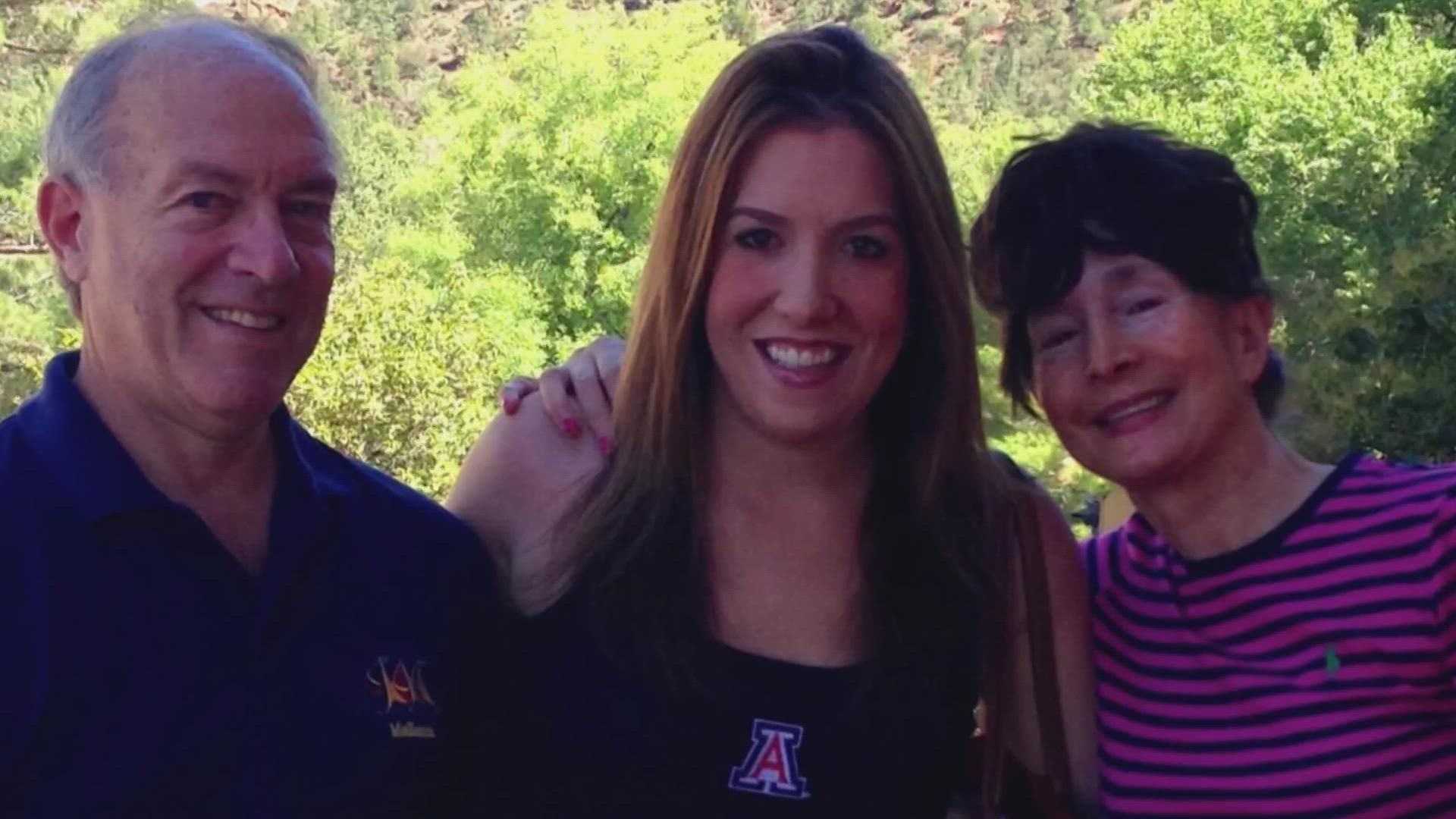SCOTTSDALE, Arizona — The murder trial of a man accused of killing a Scottsdale woman in her home eight years ago will be delayed a while longer after a Maricopa County Superior Court judge ruled to suppress key DNA evidence in the case.
The 12News I-Team learned that in December, Judge Chuck Whitehead ruled the Scottsdale police violated murder suspect Ian Mitcham’s constitutional rights when attempting to identify him using his DNA.
New obstacles in a case that stumped investigators for years
For more than three years after Allison Feldman was murdered, investigators struggled to find a suspect.
Then, a breakthrough when Scottsdale police told the public they were certain they found the man who murdered her.
“We are 100% confident we have the right suspect,” Assistant Chief Scott Popp said during a press conference in April 2018.
That confidence is the result of a familial DNA search that linked an incarcerated man’s DNA to a sample found at the crime scene in Feldman’s home.
Specifically, the Arizona Department of Public Safety Crime Lab found the DNA sample from the crime scene likely belonged to a relative of Mark Mitcham, who was serving a prison sentence for a molestation conviction.
Based on that familial connection, Scottsdale police immediately began investigating Mark Mitcham’s brothers - turning attention to Ian Mitcham, who had previously been arrested by Scottsdale officers for driving under the influence in 2015.
During that DUI arrest, Ian Mitcham provided a blood sample for blood alcohol testing.
Within hours after Scottsdale police learned of the familial DNA connection, then-Sgt. Hugh Lockerby submitted Ian Mitcham’s blood sample from the 2015 DUI for DNA testing, too. Court records show Assistant Chief Popp authorized this test over email.
It turned out to be a match.
But now, more than four years after the arrest, court records show Mitcham’s blood should have been destroyed 90 days after his 2015 arrest if a request for testing was not made.
Mitcham’s legal team argued Scottsdale police should not have had the blood sample more than three years later – and that it was illegal to use for DNA analysis because it violated Mitcham’s fourth amendment rights.
Mitcham’s defense team argues to suppress "illegally obtained DNA evidence"
In a motion hearing to suppress the DNA evidence in December 2022, Mitcham’s defense questioned Scottsdale police after officers said they didn’t get a warrant to test Mitcham’s blood because they believed they didn’t need it.
The blood was already in evidence. But the defense argued that that wasn’t the only issue.
Defenses counsel: “Did you inform Mr. Mitcham that his blood could be tested for DNA?”
Officer involved in 2015 DUI arrest: “No ma’am.”
Defense Counsel: “Did Mr. Mitcham sign anything saying his blood could be tested?”
Officer involved in 2015 DUI arrest : “No ma’am.”
Scottsdale police Lt. Lockerby also took the stand and told the court, “I didn’t believe I needed a search warrant because it was in our possession.”
Judge Whitehead disagreed.
In his order, Whitehead wrote that using the blood sample in this case without Mitcham’s consent was “at least a reckless violation of Defendant’s constitutional rights.”
Judge throws out key evidence, prosecutors appeal
Judge Whitehead ruled that the DNA evidence derived from Mitcham’s 2015 blood sample, the evidence that ultimately linked him to Allison’s murder, can’t be used at trial.
Judge Whitehead noted in his order that: “Exclusion’s ‘bottom-line effect, in many cases, is to suppress the truth and set the criminal loose in the community without punishment.’”
The judge also excluded other DNA evidence derived from the blood sample, citing "fruit of the poisonous tree." That includes Mitcham's cheek swab Scottsdale police obtained with a warrant to confirm the match.
Scottsdale police declined 12News’ request for an interview about the judge’s ruling and the department’s decision to use Mitcham’s old blood sample without a new warrant.
The Maricopa County Attorney’s office, which also declined an interview, is now appealing the ruling. In their appeals filing, the prosecutors maintain that Mitcham had no right to privacy in the blood sample; arguing it was legally obtained by Scottsdale police in 2015.
MCAO also argues it was “inevitable” that investigators would link Allison Feldman’s murder to Ian Mitcham, particularly after Mitcham was convicted in two other unrelated felony charges in 2022.
Mitcham's attorney said he couldn't comment on a pending case. Mitcham pleaded not guilty to the charges against him in this case.
The next hearing in Superior Court will be in early February.
Allison Feldman's legacy
Over the phone, Allison's father, Harley Feldman, said they were disappointed the case could be delayed longer. His family is ready to move forward with the trial, so they can close that chapter in this case and focus on Allison's legacy.
Harley Feldman shared that a scholarship fund set up in Allison's name has already awarded six students funds to help them study abroad.
Up to Speed
Catch up on the latest news and stories on the 12News YouTube channel. Subscribe today.

